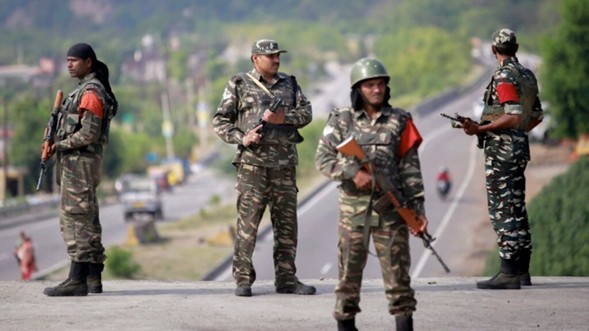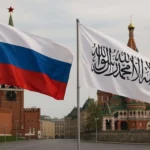India has constantly employed proxy warfare and allegedly terrorist methods to influence and undermine its regional rivals, especially Pakistan. Despite public denunciations of terrorism and its representation in international fora as a victim of cross-border extremism, India is allegedly secretly supporting insurgency inside Pakistan’s borders. This approach has a disturbing duality. These actions are aimed at Balochistan and Kashmir in line with a bigger strategy meant to undermine Pakistan from inside and impede its development initiatives.
India’s use of terrorism as a means of achieving strategic objectives is not a new phenomenon. It has supported anti-Pakistan insurgent groups since at least the war in East Pakistan in 1971. The Bengal separatist movement, Mukti Bahini, had great support from India during the height of the East Pakistani civil war. The Indian armed forces supported direct combat, military training, and weapon supply. The split of Pakistan and the founding of Bangladesh brought about a notable change in the geopolitical power balance of South Asia. In 2015, Indian Prime Minister Narendra Modi openly admitted in a speech he delivered in Dhaka that India supports the Mukti Bahini and it’s a matter of national pride for India.
This admission supports India’s indirect interventionist foreign policy orientation via non-state actors.
Continuing its historical legacies, India continued to support terrorists and insurgent groups, and separatist elements in Pakistan. The most recent incident is the detention of an Indian naval officer (Commander Kulbhushan Jadhav) in March 2016 in Balochistan. Jadhav revealed a network of espionage, sabotage aimed at sparking ethnic conflict and sectarian upheaval in Pakistan, specifically in Balochistan and Karachi. Pakistan sent a dossier to the UN and other international agencies outlining Jadhav’s links to the planning of terrorist attacks and cooperation with banned separatist groups.
One such terrorist organization is the Balochistan Liberation Army (BLA). The BLA has attacked military and civilian targets as well as Chinese workers engaged in the China-Pakistan Economic Corridor (CPEC) multiple times. In an attempt to thwart China’s Belt and Road Initiative project, the CPEC, which has the potential to transform Pakistan’s economy and regional ties, India provides the BLA financial and logistical support, claims Pakistani officials. The Pearl Continental Hotel in Gwadar and the Jinnah Residency in Ziarat were reportedly assaulted by BLA members with the assistance of Indian intelligence networks.
Allegations of subversive activities by Indian agents are substantiated by evidence found in conflict areas and confessions from apprehended militants.
Contrary to the facts, India always presented itself as a victim of terrorism.
Incidents such as Pahalgam (2025), Pulwama (2019), Pathankot (2016), and Mumbai (2008) have been utilised by Indian politicians to depict their nation as a bastion against extremism. The credibility and coherence of India’s counterterrorism narrative are undermined by its overt backing and guidance of insurgent factions like the BLA. The detriment to India’s moral stature and the requisite trust for effective diplomatic relations in South Asia can be more comprehensively grasped through an examination of this hypocrisy.
From a strategic perspective, these moves further India’s overall geopolitical objectives. When Pakistan’s internal security is jeopardised, it becomes much more difficult for the country to exercise its power and carry out an independent foreign and economic policy. India aims to damage Pakistan’s economic relations with China and prevent Pakistan from using its wealth by causing strife in the resource-rich southern province of Balochistan. Most of these tactics are based on maintaining the current balance of power in the region, which gives India unmatched military and economic dominance. By portraying Pakistan as a haven for terrorism, India seems to be avoiding the complexity of its demographic shifts, protracted occupation, and alleged systematic human rights abuses in Kashmir. There are two opposing viewpoints in the discussion of the claim that India uses terrorism as a tool of state policy. In essence, this move undermines Pakistan’s credibility and stability while strategically diverting India’s attention from its regional and domestic goals. Depicting India as a frail state strengthens its case in trying to collaborate with the Western nations fighting the so-called global ‘war on terror’.
This aids India’s efforts to partake in the international power structure, irrespective of the accusations levelled against it for trying to engage in some sort of conspiratorial counteraction to everything it professes to stand for.
Achieving genuine and lasting peace in South Asia will require unreserved and candid counter-terrorism respect and non-interference, as well as regard for sovereignty. The support of terrorist and insurgent groups, which India is purported to aid and abet within Pakistan, threatens not only to upend the fragile equilibrium of the relations between India and Pakistan but is emblematic of the more pervasive issues concerning global order, thus steeping the trouble deeper than the bilateral dimensions of the problem. If left unchallenged, these processes stand to further worsen an already precarious interplay of forces that may culminate in the unleashing of war and retaliatory strikes.







